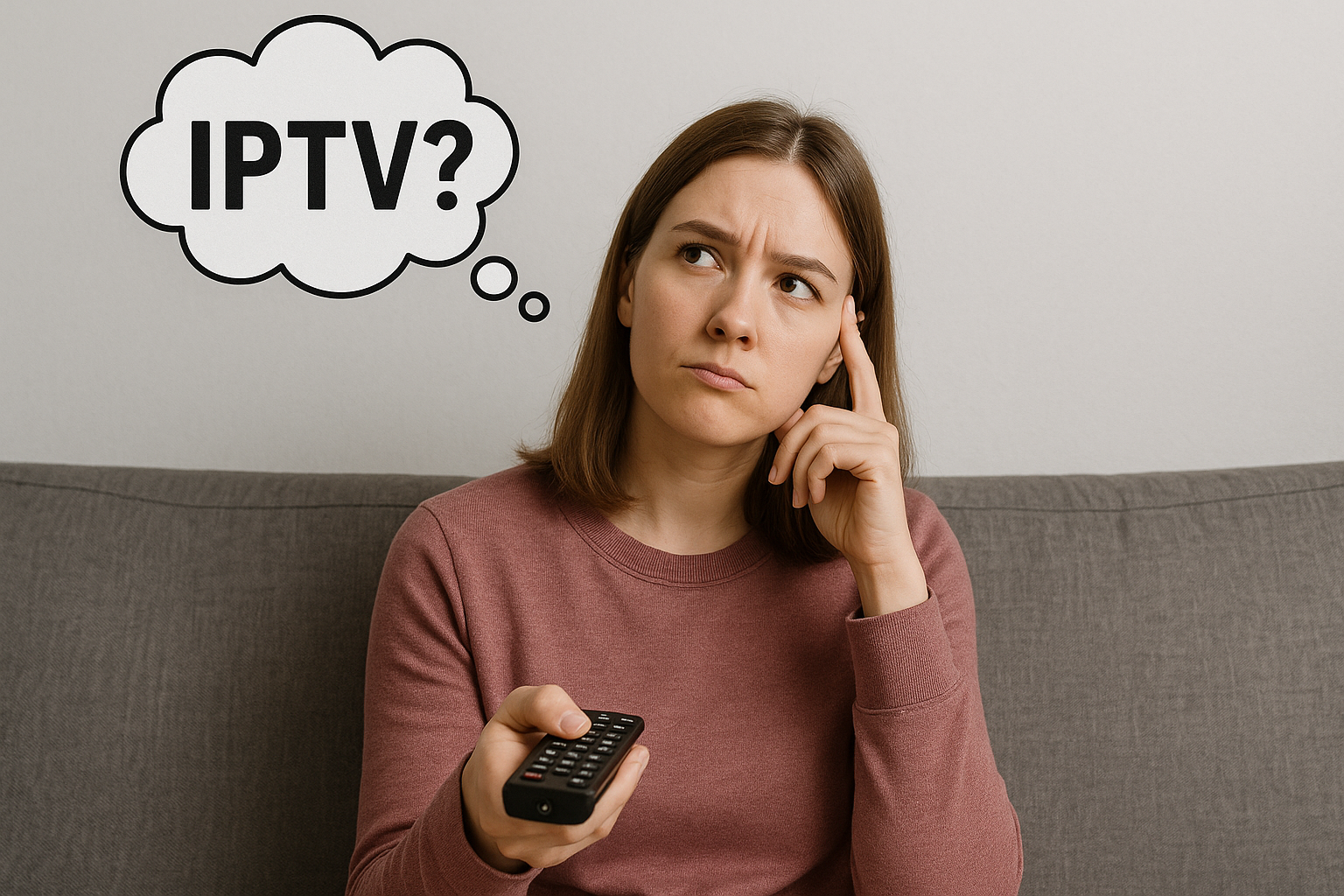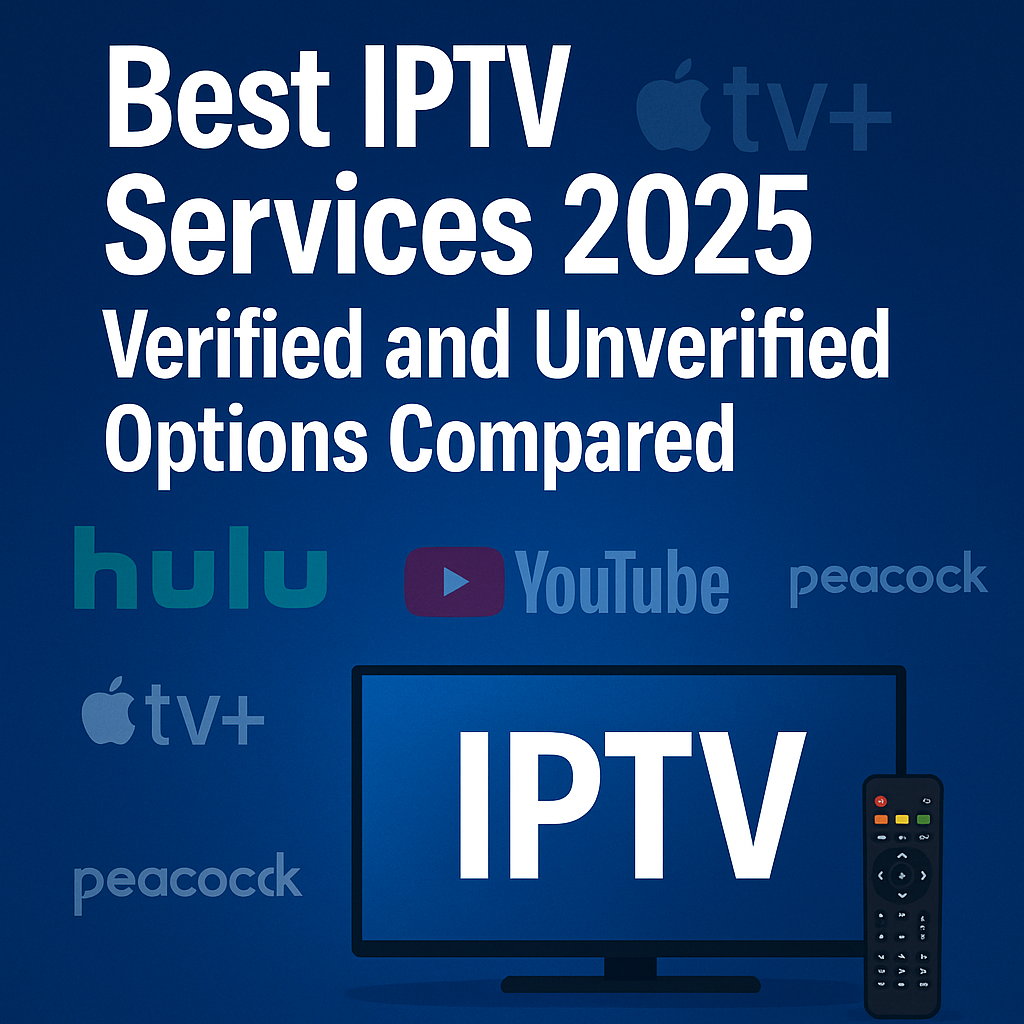With streaming services on the rise and cable TV becoming outdated, many are asking: what is IPTV and why is it so popular? If you’re new to the world of Internet Protocol Television, this beginner-friendly guide will explain everything you need to know in 2025.
Table of Contents
Introduction to IPTV
IPTV stands for Internet Protocol Television. Rather than relying on traditional cable or satellite signals, IPTV uses your internet connection to stream TV content directly to your devices. This means you can watch live channels, movies, and series directly on your devices using an internet connection—no satellite dish or coaxial cables required.
If you’ve ever used Netflix or YouTube, you’ve already experienced IPTV in action. But IPTV is not just about on-demand content—it also includes live TV and time-shifted media.
How IPTV Works: The Technology Behind It
IPTV works by streaming content through your internet connection using IP (Internet Protocol). Here’s how it breaks down:
- Content Source: TV shows or live streams are encoded and uploaded to a central server.
- IPTV Server: These servers store, manage, and distribute the video content requested by users, ensuring smooth and timely delivery to connected devices.
- Middleware: A software platform that manages user interfaces, channel guides, and content access.
- Delivery to Devices: Content is streamed to the user’s device using either Unicast (one-to-one) or Multicast (one-to-many) protocols.
Unlike traditional broadcasting, IPTV content is requested by the user, which makes it more flexible and efficient.
Different Types of IPTV Services
IPTV services can be grouped into three main categories:
Live Television (Live TV Streaming)
Just like cable or satellite TV, this includes real-time broadcasting of channels like news, sports, and entertainment.
Video on Demand (VOD)
Users choose from a library of content and watch at their convenience. Think of it as Netflix-style streaming.
Time-Shifted TV (Catch-up TV)
This allows users to replay broadcasts they may have missed. Examples include services like BBC iPlayer or Hulu’s Replay TV.
Top 5 IPTV Services Worldwide
Here are five of the most popular IPTV services around the world:
- YouTube TV – Offers a wide variety of live channels in the U.S.
- Hulu + Live TV – Combines on-demand content with live broadcasts.
- Sling TV – Known for its flexible pricing and channel packages.
- XtremeHD IPTV – A premium unverified IPTV provider with global reach.
- 1ClickTV – Affordable and reliable, especially popular for international and sports content.
What You Need to Watch IPTV
To access IPTV, you don’t need any special cables or a satellite dish. Here’s what you do need:
- High-Speed Internet: At least 10 Mbps is recommended for HD quality.
- Compatible Device: Smart TV, smartphone, tablet, computer, Android box, or Firestick.
- IPTV App/Player: Such as IPTV Smarters, TiviMate, or XCIPTV.
- IPTV Subscription: Either free (limited channels) or paid (premium content).
Benefits of Using IPTV Over Traditional TV
- More Content: Access to thousands of global channels and VOD.
- On-the-Go Streaming: Watch from anywhere with an internet connection.
- Cost-Effective: Much cheaper than traditional cable subscriptions.
- No Contracts: Most IPTV services are pay-as-you-go.
- Multi-Device Support: Watch on multiple screens at once.
Is IPTV Legal? What You Should Know
The legality of IPTV depends on the licensing behind the service. IPTV providers fall into two major categories: verified and unverified services.
Verified IPTV Services (Legal)
These services have proper content licensing agreements and are fully legal to use. They typically offer fewer channels compared to unverified providers but ensure quality, legality, and reliability.
- YouTube TV
- Hulu + Live TV
- Peacock
- Apple TV+
- Disney+
- Paramount+
Unverified IPTV Services (Gray Area or Illegal)
These providers may offer thousands of channels and VOD at very low prices but often without proper licensing. This puts them in a legal gray area or outright illegality depending on the laws in your country.
- 1ClickTV
- XtremeHD IPTV
- Apollo Group TV
- YeahIPTV
- IPTV Trends
Verified vs Unverified IPTV: What’s the Difference?
- Content Licensing: Verified IPTV pays for content rights; unverified IPTV does not.
- Reliability: Verified services are stable and backed by major brands. Unverified ones may be shut down without warning.
- Legal Risks: Using verified IPTV is 100% legal. Unverified IPTV may expose users to legal consequences, including copyright infringement claims, service shutdowns, or warning notices from ISPs.
- Content Variety: Unverified services often offer more channels and global access.
Why Do Most People Choose Unverified IPTV?
Despite the risks, many users opt for unverified IPTV because:
- It’s much cheaper than verified alternatives.
- Offers more channels, including international and premium sports.
- Often includes VOD libraries and PPV events.
- No contracts or commitments.
Disclaimer: Using unverified IPTV may violate copyright laws. Always check your local regulations and consider using a VPN to protect your privacy.
VPN and Its Role in IPTV
Why Use a VPN with IPTV?
A VPN (Virtual Private Network) enhances your privacy and bypasses restrictions:
- Avoid ISP Throttling: Your ISP might slow down IPTV traffic.
- Unblock Geo-Restricted Channels: Access foreign content.
- Protect Your Identity: Keep your IP address and activity private.
- Avoid Legal Risks: Especially when using unverified services.
Best VPNs for IPTV in 2025
Here are the top VPNs IPTV users rely on, along with their advantages and drawbacks:
1. NordVPN
✅ Pros:
- Excellent speed and stability
- Large server network (5,000+ servers)
- Advanced security features (Double VPN, Threat Protection)
- Works well with unverified IPTV platforms
❌ Cons:
- Slightly more expensive than some competitors
- Desktop app can be complex for beginners
2. ExpressVPN
✅ Pros:
- Super-fast streaming speeds
- Extremely reliable for unblocking geo-restricted content
- Easy-to-use apps across all devices
❌ Cons:
- More costly than other options
- Limited advanced configuration settings for power users
3. Surfshark
✅ Pros:
- Affordable pricing
- Unlimited simultaneous connections
- Fast and optimized servers for streaming
❌ Cons:
- Fewer server locations than NordVPN or ExpressVPN
- Occasional connection drops on mobile
4. CyberGhost
✅ Pros:
- Very user-friendly
- Optimized servers labeled for streaming and IPTV
- Strong privacy policies and AES 256-bit encryption
❌ Cons:
- Desktop app can be slow to launch
- Not as fast as NordVPN or ExpressVPN on long-distance servers
When using IPTV—especially unverified services—a VPN is not optional. It provides a secure, private, and buffer-free viewing experience while giving you access to content that may otherwise be blocked in your region.
Common Devices and Apps for IPTV
- Smart TVs (Samsung, LG)
- Amazon Firestick/Fire TV
- Android TV Boxes (Formuler, Buzztv)
- iOS & Android Phones
- PC & Mac
- Popular IPTV Apps: IPTV Smarters, TiviMate, XCIPTV, GSE IPTV, Hot Player
Final Thoughts
If you were wondering what is IPTV, now you know it’s a powerful, flexible way to watch live and on-demand TV through the internet. With the right setup, IPTV can replace traditional TV services completely.
Whether you opt for a legal provider like Hulu or try an unverified one like 1ClickTV, always use a VPN to stay secure and unlock the full potential of IPTV. Happy streaming!




